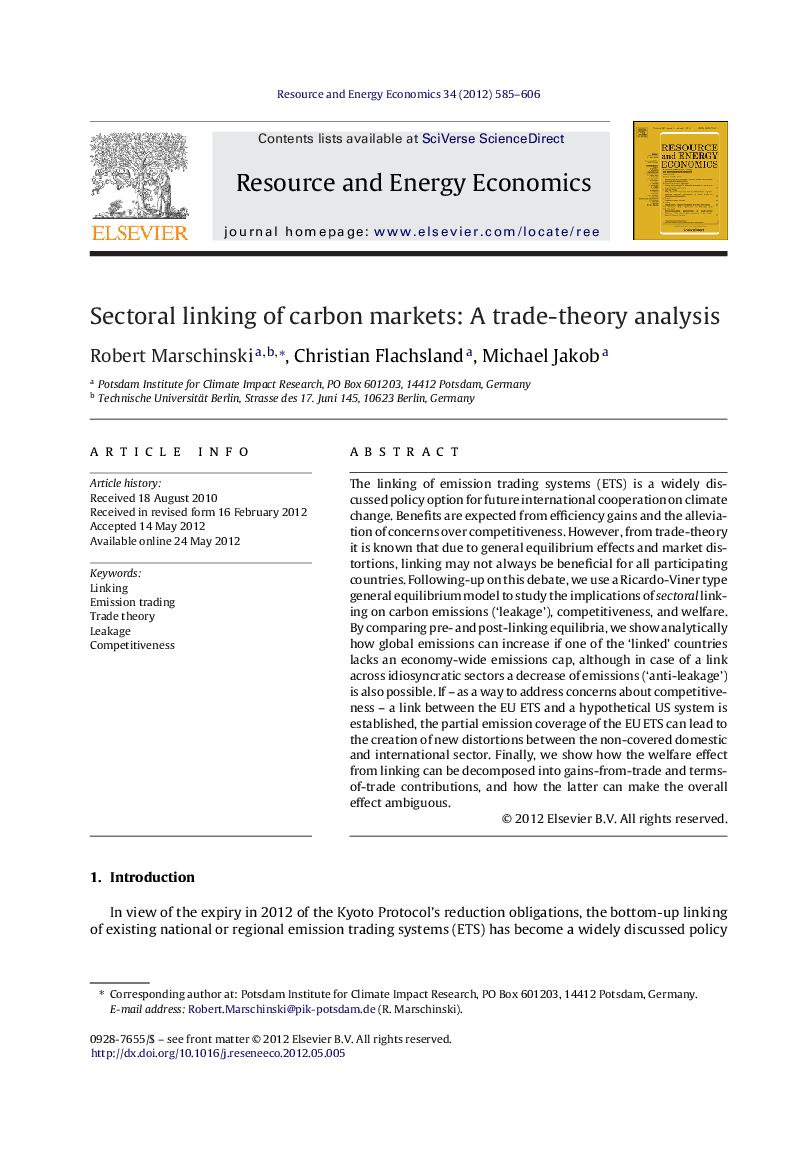| کد مقاله | کد نشریه | سال انتشار | مقاله انگلیسی | نسخه تمام متن |
|---|---|---|---|---|
| 985733 | 934668 | 2012 | 22 صفحه PDF | دانلود رایگان |

The linking of emission trading systems (ETS) is a widely discussed policy option for future international cooperation on climate change. Benefits are expected from efficiency gains and the alleviation of concerns over competitiveness. However, from trade-theory it is known that due to general equilibrium effects and market distortions, linking may not always be beneficial for all participating countries. Following-up on this debate, we use a Ricardo-Viner type general equilibrium model to study the implications of sectoral linking on carbon emissions (‘leakage’), competitiveness, and welfare. By comparing pre- and post-linking equilibria, we show analytically how global emissions can increase if one of the ‘linked’ countries lacks an economy-wide emissions cap, although in case of a link across idiosyncratic sectors a decrease of emissions (‘anti-leakage’) is also possible. If – as a way to address concerns about competitiveness – a link between the EU ETS and a hypothetical US system is established, the partial emission coverage of the EU ETS can lead to the creation of new distortions between the non-covered domestic and international sector. Finally, we show how the welfare effect from linking can be decomposed into gains-from-trade and terms-of-trade contributions, and how the latter can make the overall effect ambiguous.
► Uses a Ricardo-Viner type general equilibrium model with three countries.
► Implications of sectoral linking on carbon leakage and competitiveness are analyzed.
► Linking European ETS to a country without full cap might increase global emissions.
► Link between EU ETS and a hypothetical US system would not remove all distortions.
Journal: Resource and Energy Economics - Volume 34, Issue 4, November 2012, Pages 585–606